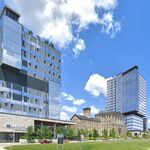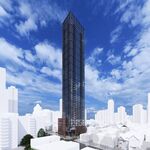Take for example the orthodoxy now that adding highway capacity is pointless because it just creates congestion. What does this even mean? Adding capacity to a system has real meaningful impacts even if the ultimate outcome is a large amount of congestion.
It means exactly what it sounds like. If the goal is to reduce congestion - something almost everyone would agree is important, because it negatively affects everyone, building new highways will not achieve that goal.
Is congestion itself even a bad thing? The worst thing from an economic point of view is no congestion, not heavy congestion.
You may just be playing devils advocate, but this is shaky ground to stand on. Yes, congestion is a bad thing, by pretty much every metric. Its very bad for the environment, wastes many precious hours each day, and limits economic activity. This isn't a subjective thing - congestion is bad.
You are also incorrect that no congestion is worse than congestion - you're confusing no congestion and underutilization of the road. If no one is driving on the highway, the highway is a waste of space and money - that much is true. But the ideal is to have exactly the number of cars you want on the highway actually on the highway.
Of course short of capping the number of people on the highway at once - which I don't think would work very well - this is impossible. Which means congestion is unavoidable. The equilibrium point of a highway [during rush house] is congestion. Otherwise, the highway will continue until it reaches that point. And that absolutely is an economic issue - not a benefit, because thats when things start slowing down.
Do we prioritize local neighbourhood concerns or regional economic concerns?
I'm tempted to say "A firm no." But I should probably go with "It depends."
Neighbourhoods can bring valuable perspective to a conversation, and can prevent bad developments from going through (Spadina expressway, which would have levelled a neighbourhood). But other things, no. Not at all. For example, should the residents of Pape be able to stop the DRL? God no. For one, we know for a fact we really need it. And second, unlike the Spadina Expressway, we aren't levelling a neighbourhood to build the DRL.
The needs of the many come before the local needs of the few. Thats how our society largely works.
Is the objective of the system to optimize through-put of goods and people in the city?
Yes, of course. Is this not the fundamental goal of a transportation network?
Is it to reduce costs in the city?
What costs?
Is it to champion social justice issues such as equity or equality?
Sort of? Transportation planning and urban planning are directly intertwined. I think transportation planners need to let the urban planners focus on that side of things. Transit in particular is critical for the poor, so I do absolutely think their needs are a factor. Which is why the Malvern LRT is so good - it passes through numerous high-need neighborhoods.
Is it to create liveable neighbourhoods? Etc.? Public transit is an important ingredient in addressing some of these issues but no public transit solution can do so in a universal manner.
Again, yes. Urban planning and transportation planning are brothers and sisters. You're right that the goal is an integrated network, where everything works together. But a lot of these questions you are answering are phrased as though their answers are mutually exclusive, but thats not the case. Transit can take many forms and do multiple things at once.
My personal paradigm is to view public transit through an economic lens, a way to enhance the amount of people and goods movement through the city region. That probably means prioritizing densely populated routes, and point-to-point rapid transit that may bi-pass local neighbourhood concerns.
Im not sure I agree. That seems like a cold way to look at things. At its core, its about moving
people. And I don't like looking at people as just economic utility producers. The goal should be to make people better off, at its core. Everything else I mentioned revolves around that fundamental core.
Good post, you gave me lots to think about.




